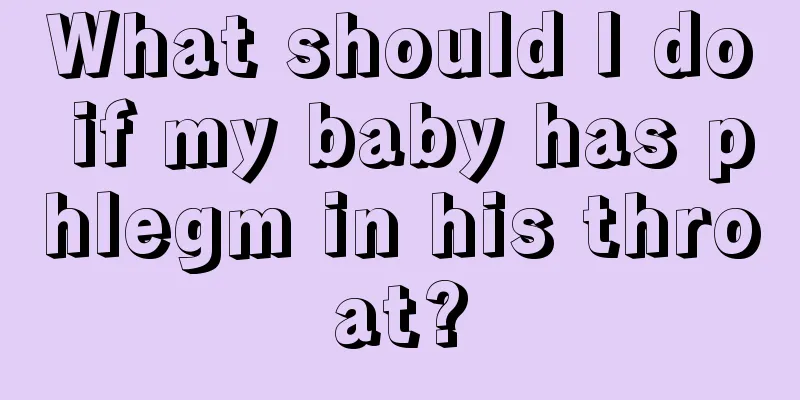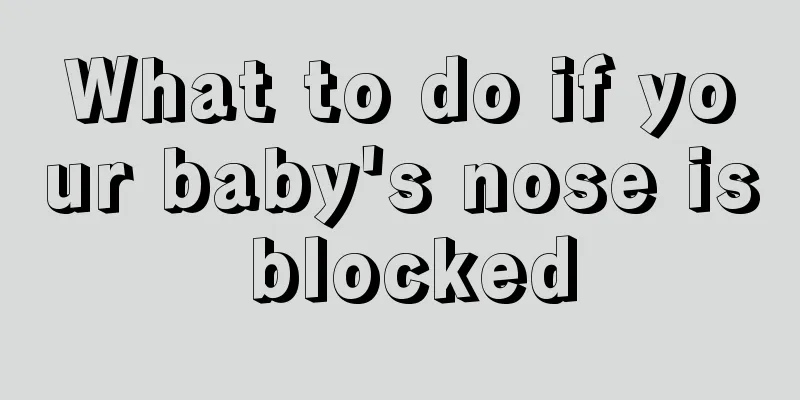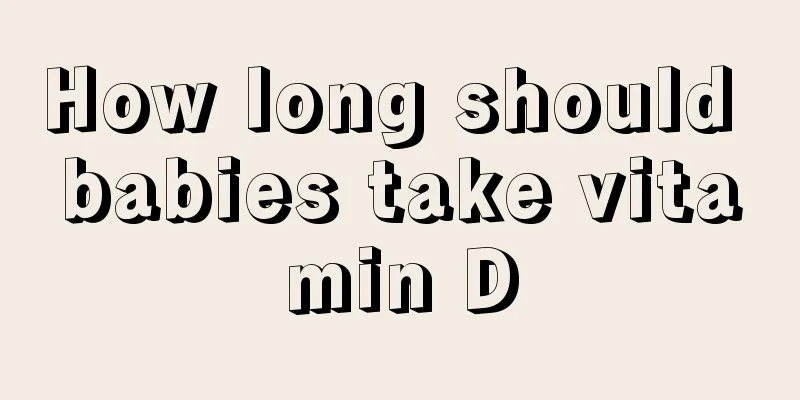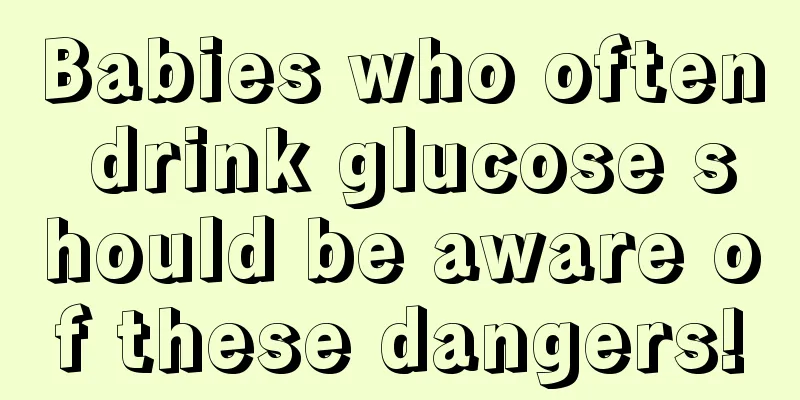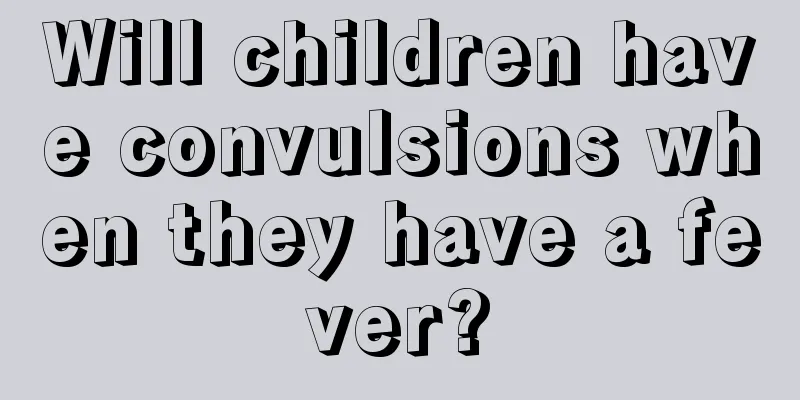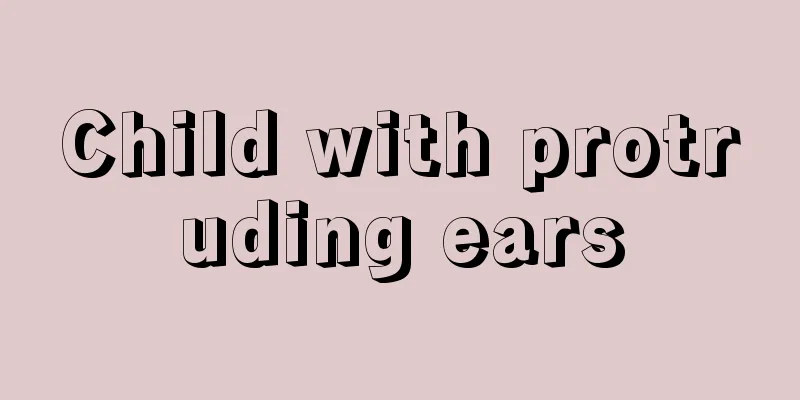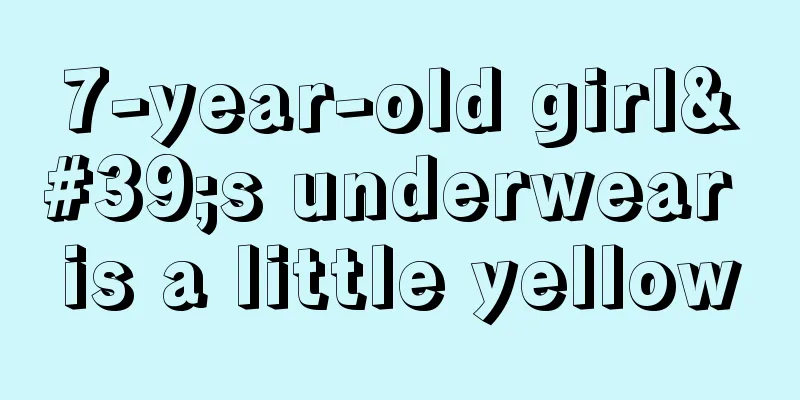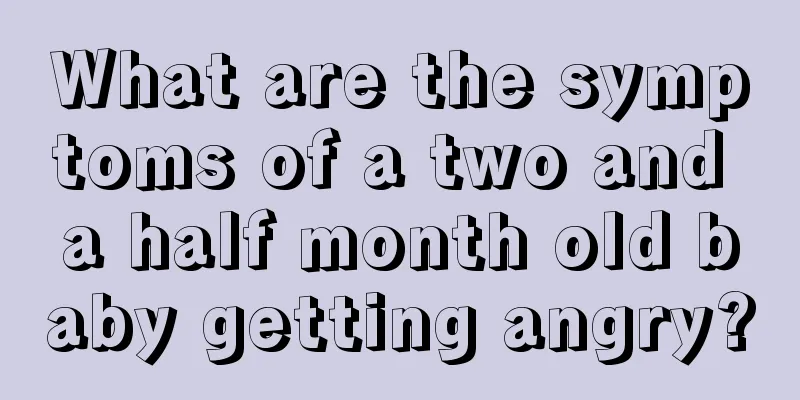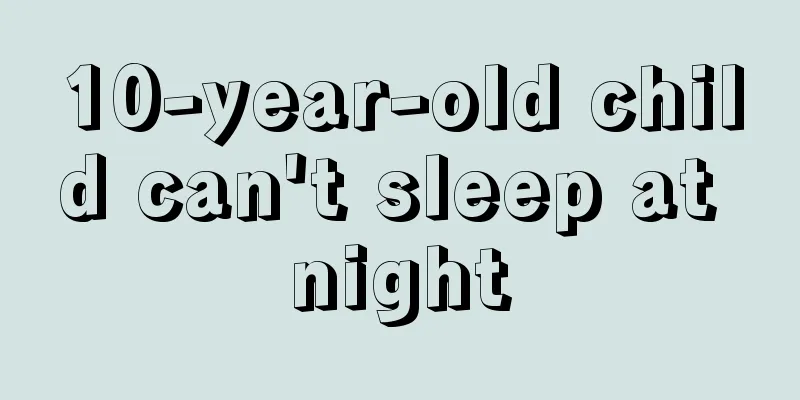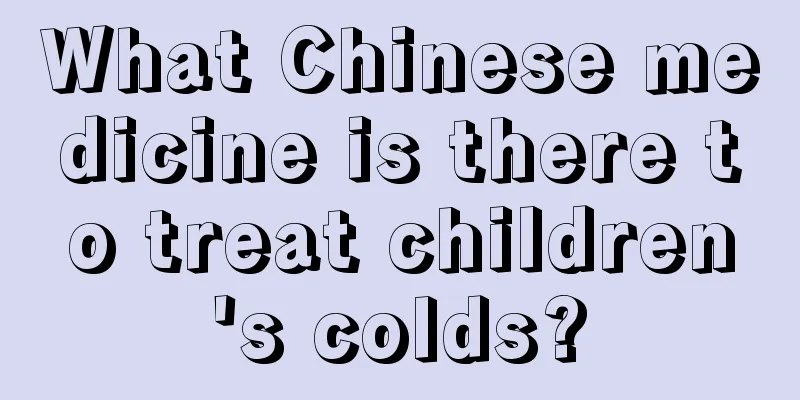Causes of fever and convulsions in young children
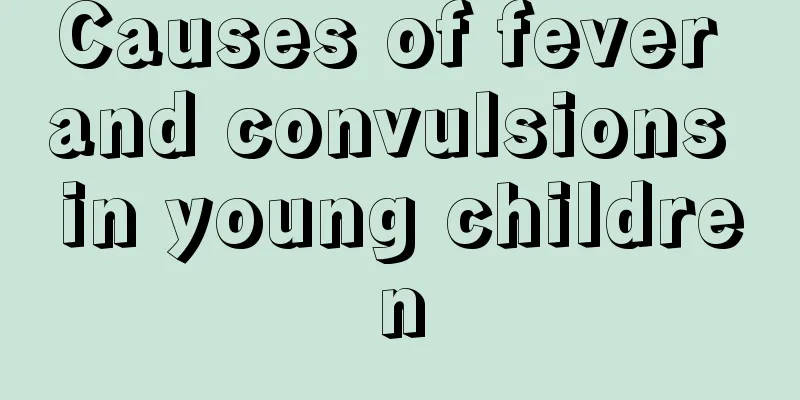
|
Young children are often prone to symptoms of colds and fevers in their daily lives, and some of them are quite serious. The reason why young children have a fever is probably that their own resistance is relatively weak, so some germs or viruses can easily invade the body. Then the physical exercise of young children should be strengthened, and attention should be paid to adjusting the diet structure reasonably. The symptoms of fever in young children are different, so what are the causes of fever and convulsions in young children? A baby's fever and convulsions are medically called "febrile convulsions", which is a type of febrile convulsion in children. The reason for fever and convulsions is that the nervous system of infants and young children is not fully developed. For example, the inhibitory function of the cerebral cortex is poor and the myelin sheath is not fully formed. Therefore, after being stimulated by high fever, it is easy to cause abnormal discharge of brain motor neurons and cause convulsions. Once stimulated by external stimuli, the excitement is easy to spread and cause convulsions. Generally speaking, infants and young children between 6 months and 4 years old, especially those who often catch colds and fevers, are more likely to suffer from febrile convulsions. Convulsions usually occur when the baby has a high fever, such as a body temperature of 39℃-40℃, and last for a relatively short time, about 2-3 minutes, and generally do not exceed 10 minutes. After the convulsion stopped, the child woke up. This situation is very common in clinical practice. Recovery is relatively fast with active treatment, and this type of high fever convulsion will not leave any sequelae, so mothers do not need to be too nervous. When your baby has a seizure, lay him or her flat on his or her back, making sure he or she does not come into contact with any sharp, hard objects. Afterwards, lay your child on his side so that he can breathe more easily and prevent saliva or vomit from blocking his trachea. Be careful not to try to pry your child's mouth open. In addition, if there is air conditioning at home, you can turn it on to between 25 and 27 degrees Celsius, put the baby in the air-conditioned room, or put an electric fan around to blow, so that the baby's body temperature will slowly drop. In this way, the baby will feel more comfortable. But if the baby's limbs are cold and he is shivering violently, it means that he feels cold and you should cover him with a blanket to keep him warm. In addition, you can also give your baby some water or wipe his body with a wet towel. |
<<: Three-year-old child twitches while sleeping
>>: What causes newborn convulsions?
Recommend
How to treat a child with fever and convulsions? These are the methods!
Young children are very fragile. Once they have a...
What to do if blisters appear on children's bodies
Children's health problems are what parents a...
At what age should children be weaned?
During infancy, children's main food is the m...
Causes and treatment of nasal concha hypertrophy in children
As we all know, the nose is an important organ in...
Is it good for babies to have early teeth?
Many families are very concerned about the develo...
Children with diarrhea should be cautious when using 5 types of drugs
Diarrhea is prevalent in summer, especially among...
Newborn baby has no bowel movement on the third day?
If a newborn does not have a bowel movement on th...
What to do if your child has a fever of 37.4
For adults, having a cold and fever is a very com...
What to eat to cure bronchitis cough in children
Among many pediatric diseases nowadays, pediatric...
Why does my baby always have a low-grade fever?
In real life, a low fever in babies is a very com...
Supplementary food for babies lacking trace elements
Many parents and friends have found that their ba...
Can 7 month old babies eat bananas?
Bananas are a very nutritious food, and they are ...
What are the dangers of picky eating in primary school students?
The harm of picky eating among primary school stu...
What to do if your child has flat feet
Once a child develops flat feet, standing and wal...
How to treat a red birthmark on a newborn's face
Newborns are difficult to take care of. Many peop...
